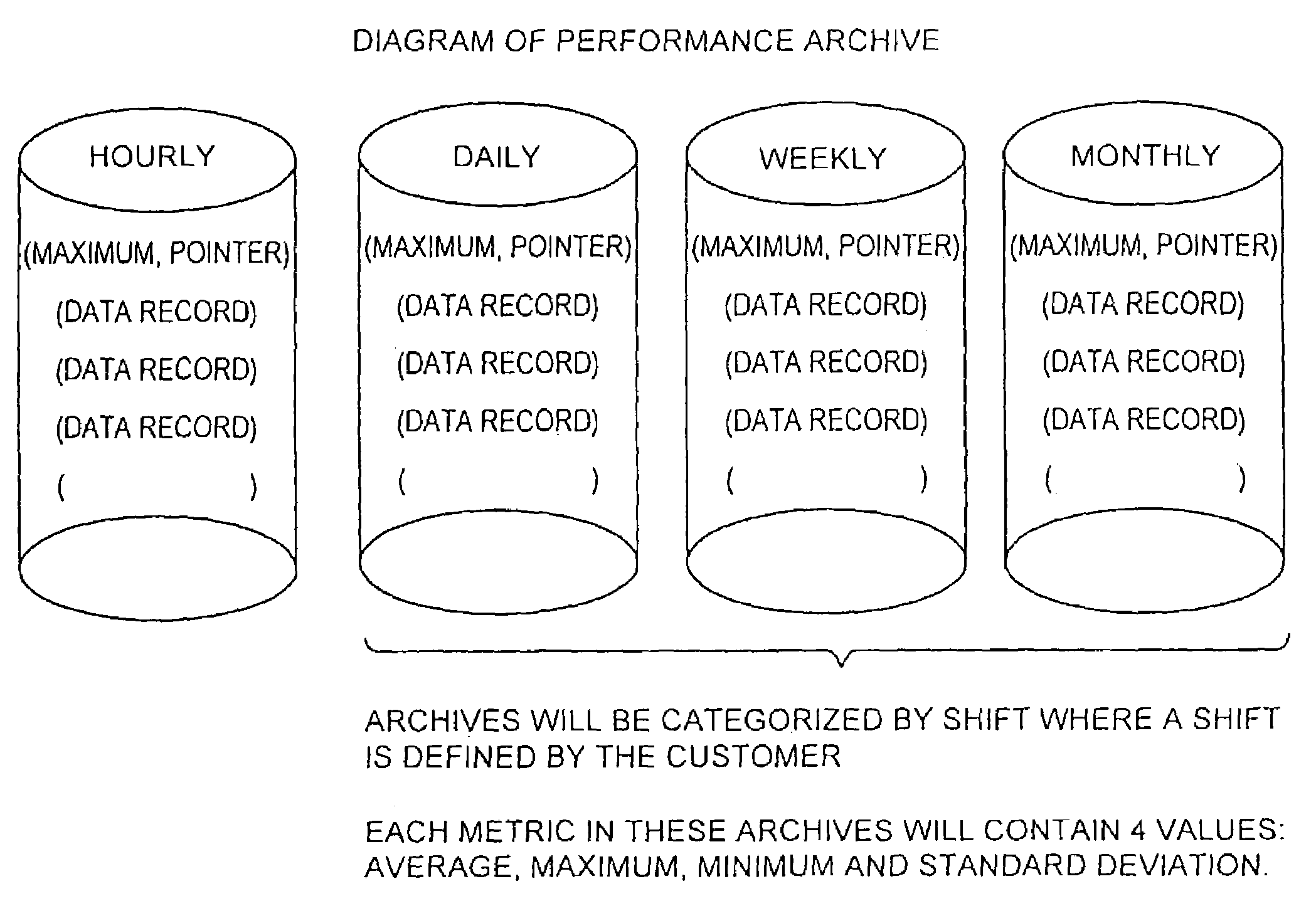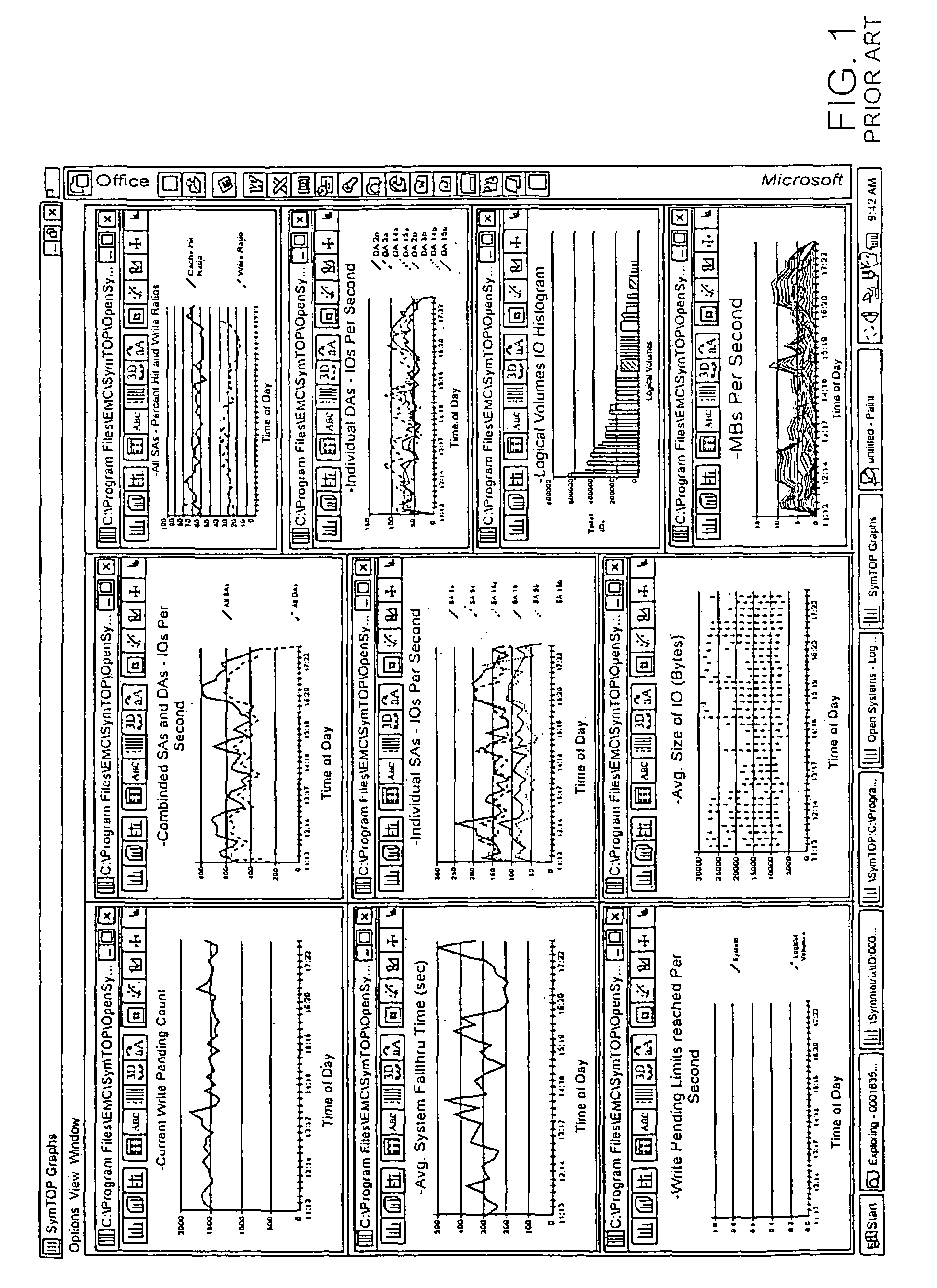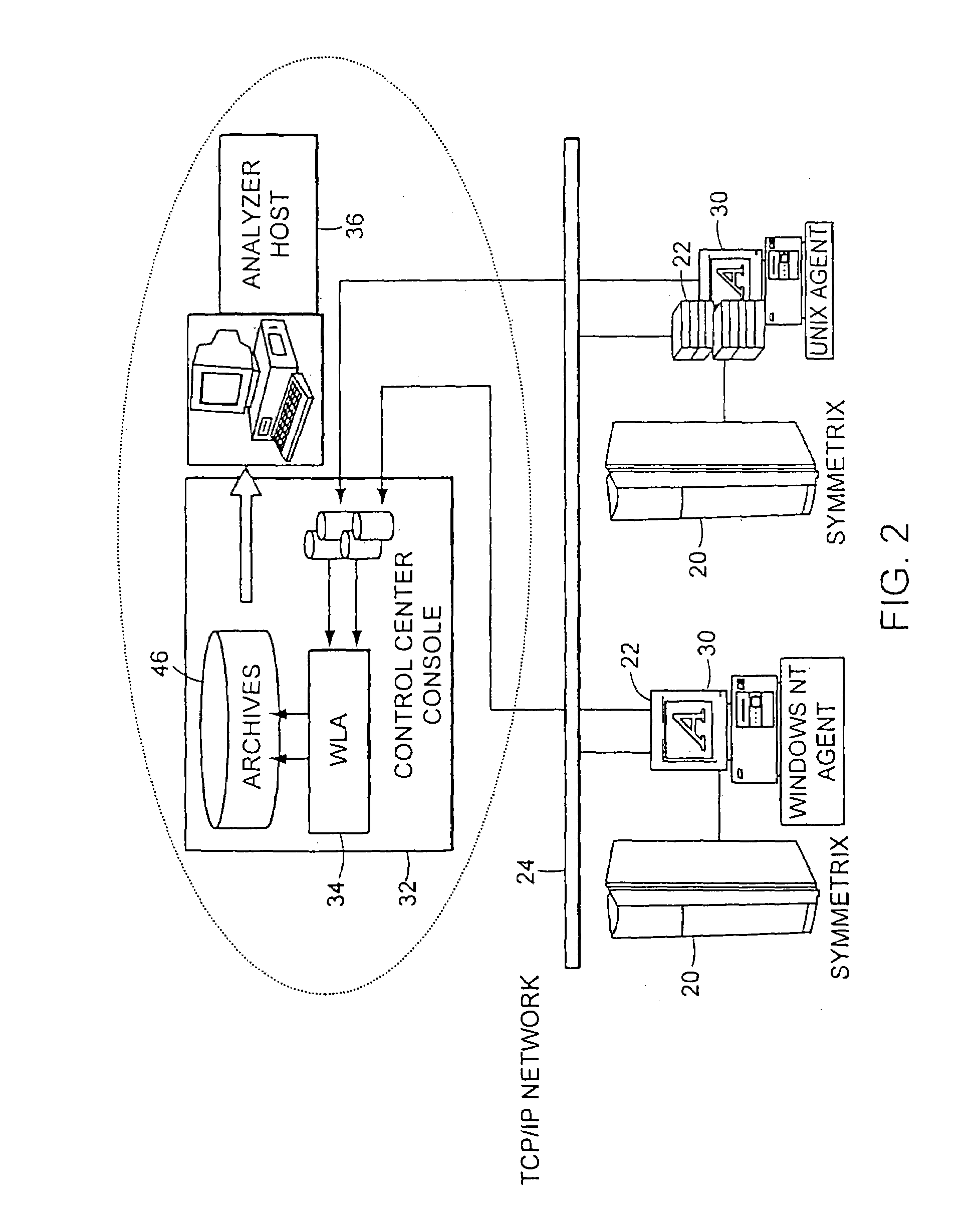Method and storage and manipulation of storage system metrics
a technology of storage system and metrics, applied in the field of data storage systems, can solve the problems of not providing access to historical data, designed to be user-friendly, and early systems that were not accessible to users, and achieve the effects of facilitating the generation of factory, facilitating access to archives, and enhancing performance analysis
- Summary
- Abstract
- Description
- Claims
- Application Information
AI Technical Summary
Benefits of technology
Problems solved by technology
Method used
Image
Examples
Embodiment Construction
[0030]A data management and archive method and apparatus according to the invention, is implemented in an illustrative embodiment described herein in an automated system to monitor and manage status, performance and configuration data for a plurality of networked storage components, such as illustrated in FIG. 2. The networked storage components in this illustrative embodiment are a plurality of Symmetrix disk storage arrays 20. A plurality of host systems 22 are configured in a network 24, such as any of various Local Area Network (LAN) for example Ethernet, or Wide Area Networks (WAN) based on interconnectivity protocols such as TCP / IP. The host systems 22 are generally any of various types of computer systems that store and process data to and from the Symmetrix arrays. For example, host systems might include computers from IBM, Hewlett-Packard, Sun Microsystems or other vendors, running operating systems such as UNIX or Windows NT. The hosts 22 may communicate with the Symmetrix...
PUM
 Login to View More
Login to View More Abstract
Description
Claims
Application Information
 Login to View More
Login to View More - R&D
- Intellectual Property
- Life Sciences
- Materials
- Tech Scout
- Unparalleled Data Quality
- Higher Quality Content
- 60% Fewer Hallucinations
Browse by: Latest US Patents, China's latest patents, Technical Efficacy Thesaurus, Application Domain, Technology Topic, Popular Technical Reports.
© 2025 PatSnap. All rights reserved.Legal|Privacy policy|Modern Slavery Act Transparency Statement|Sitemap|About US| Contact US: help@patsnap.com



